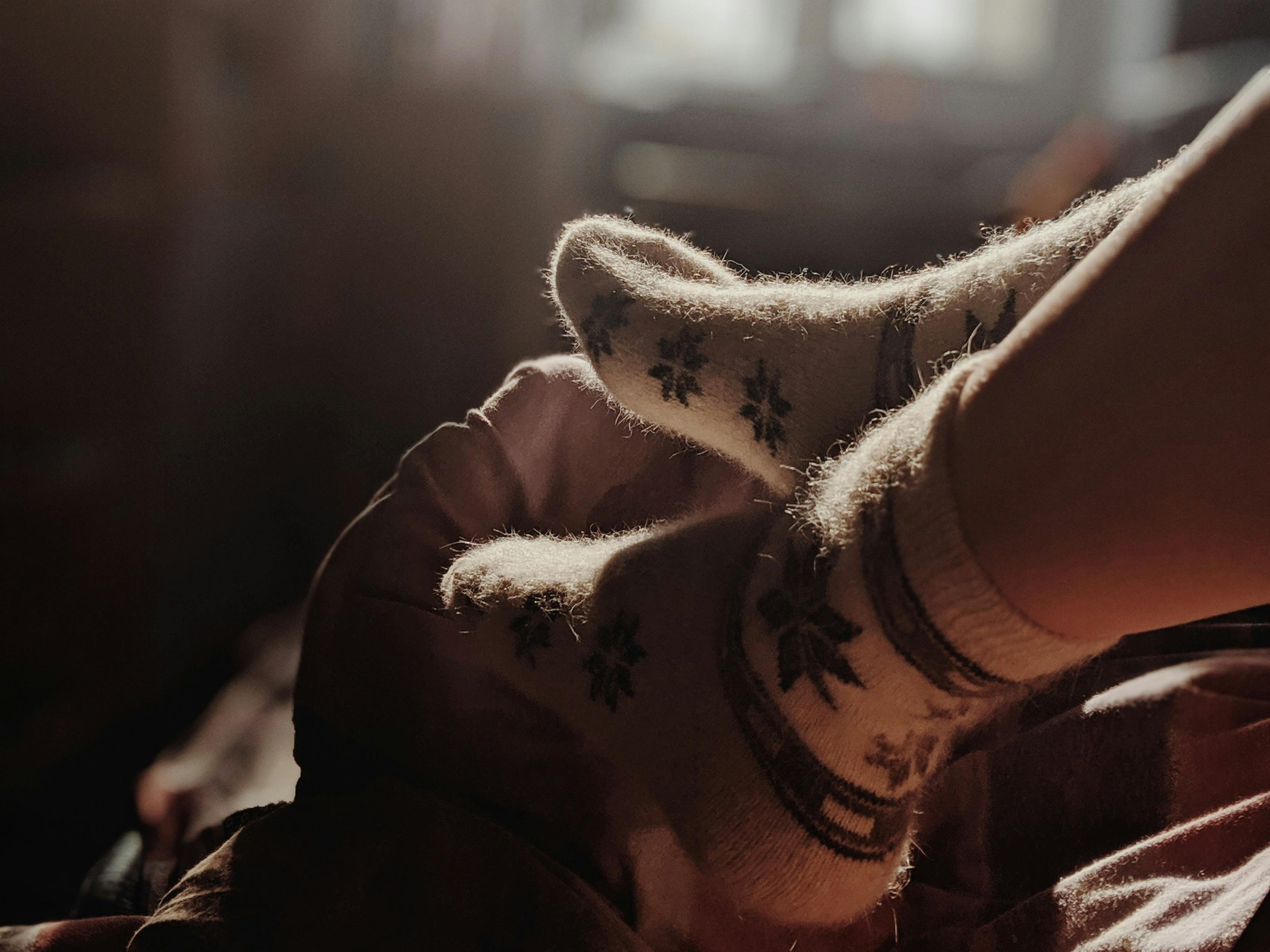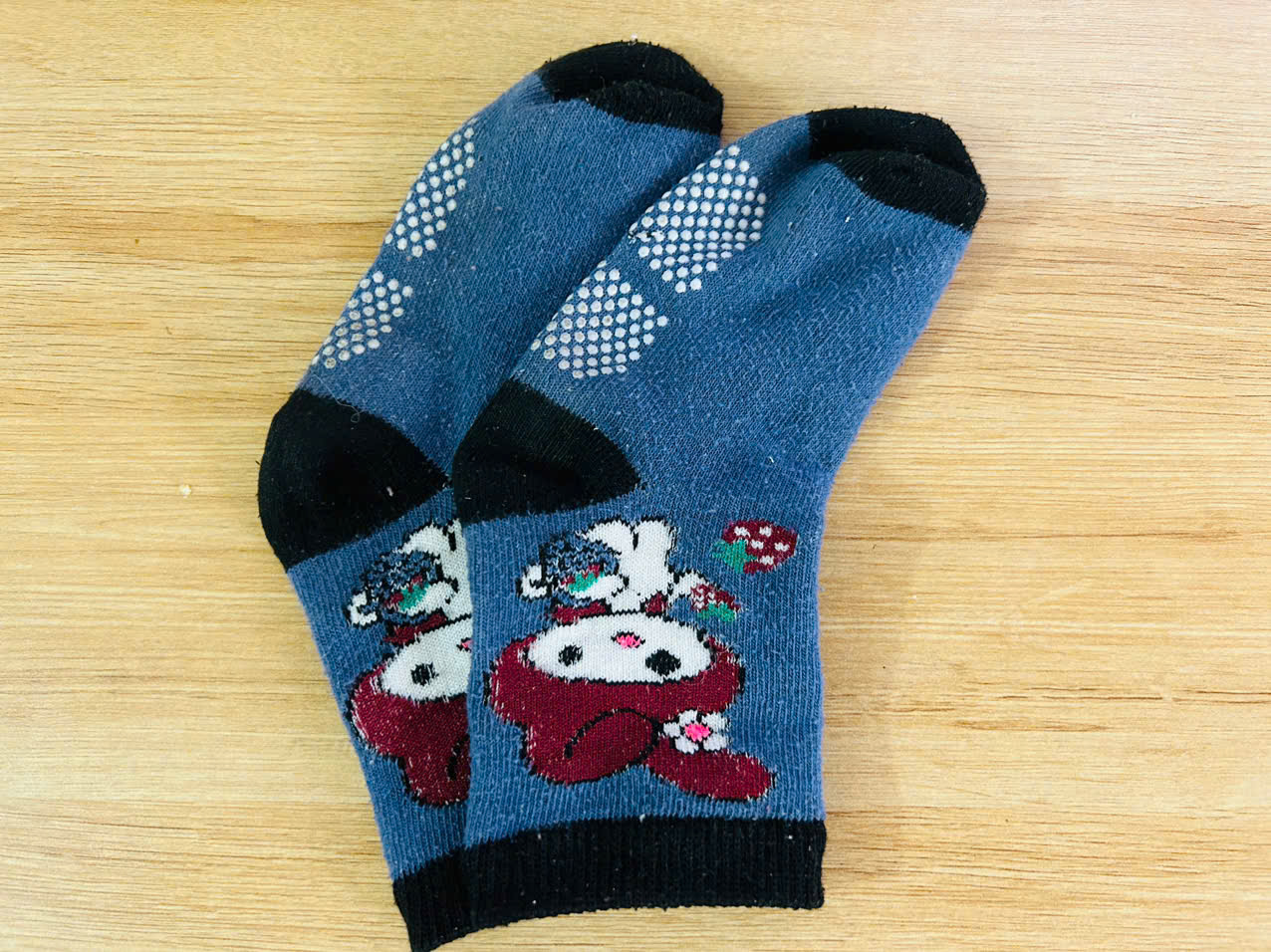Wearing socks to bed, especially in the cold weather of winter, helps keep feet warm, supports blood circulation; helps sleep deeply, reduces symptoms of skin diseases on the feet...
Doctor Le Nhat Duy (Ho Chi Minh City University of Medicine and Pharmacy Hospital - Campus 3) shared that wearing socks to bed is a habit that can bring many health benefits, but not everyone knows how to choose and use socks appropriately.
Below are some specific benefits and important notes when wearing and choosing socks for optimal effectiveness.
Maintain stable body temperature
Wearing socks to bed helps keep your feet warm, which helps your body maintain a stable temperature. This is especially helpful in the winter or for people with poor circulation. When your feet are warm, your body tends to relax, making it more comfortable and easier to fall asleep.
Support blood circulation
Wearing socks helps improve blood circulation, especially for people with cold extremities. When blood circulates better, the feeling of cold in the hands and feet will be reduced, helping to reduce the risk of small blood vessel constriction in the fingertips and toes.

Wearing socks while sleeping helps keep feet warm, helping the body maintain a stable temperature
Helps sleep deeper and better quality
Some studies have shown that wearing socks to bed can help reduce the time it takes to fall asleep, helping sleepers reach a state of relaxation more quickly. This is explained by the vasodilation effect when the feet are warm, helping the body relax.
Reduces symptoms of skin diseases on the feet
For those with dry, cracked feet, wearing socks to bed can help protect and moisturize your feet. By applying moisturizer before putting on socks, moisture is retained, keeping the skin soft and reducing cracking.
Remember to wear socks when sleeping
Choose the right sock material. Choose socks made from breathable, moisture-wicking materials such as cotton, wool, or other natural fibers. These materials help maintain temperature without causing stuffiness, creating a comfortable feeling for the user. Avoid socks made from synthetic fibers that do not breathe well, as they can easily attract moisture and bacteria.
Sock size. Socks that are too tight can put pressure on your legs, affecting blood circulation, causing discomfort and even pain. Choose socks that are the right size, making sure they hug your legs but are not too tight, allowing blood to circulate more easily.
Wash socks regularly. To avoid infections or dermatitis caused by bacteria or fungus, socks should be washed regularly. It is best to change socks daily and wash them with a mild soap. Socks should be completely dried before reuse.

Socks should be changed daily and washed with mild soap.
Do not wear socks that are too thick in the summer. In the summer, if you want to wear socks to sleep, choose thin and breathable socks. Wearing socks that are too thick in hot weather can cause excessive body temperature, causing discomfort and excessive sweating, affecting sleep.
Avoid wearing tight socks at night. Wearing tight socks to bed can restrict blood flow, disrupting your body’s ability to rest. Make sure your socks are comfortable and don’t restrict the movement of your toes.
"Wearing socks to bed can aid sleep, improve circulation and keep the body warm, especially useful in winter or for people who often have cold hands and feet. However, it is important to choose the right material and size, clean socks regularly and avoid using tight or non-breathable socks," Dr. Nhat Duy advised.
Source: https://thanhnien.vn/bac-si-chia-se-loi-ich-cua-viec-mang-vo-khi-di-ngu-18524103011040934.htm




![[Photo] Prime Minister Pham Minh Chinh works with the Standing Committee of Thai Binh Provincial Party Committee](https://vphoto.vietnam.vn/thumb/1200x675/vietnam/resource/IMAGE/2025/5/12/f514ab990c544e05a446f77bba59c7d1)
![[Photo] Prime Minister Pham Minh Chinh starts construction of vital highway through Thai Binh and Nam Dinh](https://vphoto.vietnam.vn/thumb/1200x675/vietnam/resource/IMAGE/2025/5/12/52d98584ccea4c8dbf7c7f7484433af5)

![[Photo] Prime Minister Pham Minh Chinh receives Swedish Minister of International Development Cooperation and Foreign Trade](https://vphoto.vietnam.vn/thumb/1200x675/vietnam/resource/IMAGE/2025/5/12/ae50d0bb57584fd1bbe1cd77d9ad6d97)











![[Video] International Nurses Day (May 12): Honoring the silent contributions](https://vphoto.vietnam.vn/thumb/402x226/vietnam/resource/IMAGE/2025/5/12/e417af33166f4fa28057c788dcd9086f)













































































Comment (0)